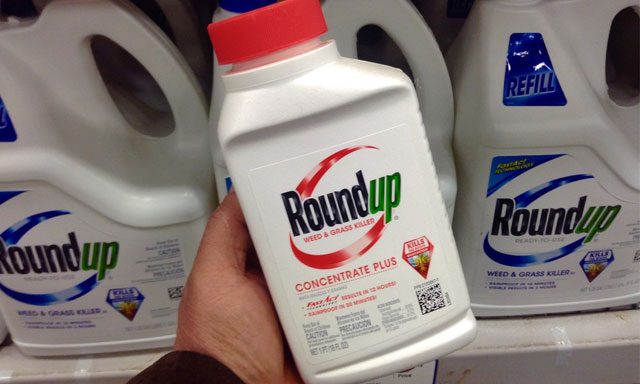
Roundup is an herbicide used by millions of farmers across the world, but new information suggests that its key ingredient may cause cancer.
First launched in 1974, Roundup Weed Killer is manufactured by Monsanto, which has a presence in more than 130 countries across the globe. It has been approved in the fight against common weeds, and it is widely used both commercially and industrially.
Roundup contains glyphosate, a chemical used to kill grasses and weeds that often interfere with crops that we consume or use on a regular basis such as corn, soy, as well as cotton. Unfortunately, the Internal Agency for the Research on Cancer says that glyphosate is carcinogenic.
Roundup and Non-Hodgkin Lymphoma
A 2016 study alleges that Roundup may have the potential to cause an aggressive form of cancer known as Non-Hodgkin’s Lymphoma.
It’s thought that Roundup causes cancer by altering DNA formation. A 2004 French study showed that Roundup has the potential to cause cell division errors in the embryos of sea urchins. In addition, an Argentine biologist carried out research which showed that pesticide sprayers in the soy industry suffered from considerable lymphatic DNA damage in comparison to people who were not exposed to the chemical.
DNA damage leads to the formation of free radicals as well as errors in the making of copies, which can set off a chain reaction develops into blood cancer.
Who’s Most At-Risk?
Individuals known to be at the highest risk or cancer are generally those who are most-often exposed to the chemical. These often include landscapers, farm workers, and those who work at garden centers and nurseries.
It is important that one wear the right gear when handling Roundup in order to minimize exposure. If you experience swollen lymph nodes, or any of the symptoms listed below, it’s vitally important that you speak with your doctor.
Early symptoms of Non-Hodgkin’s Lymphoma:
- Night sweats
- Chills and fever
- Unexplained fatigue
- Mysterious weight loss
- Fullness even after eating small amounts of food
- Chest pain, coughing, or shortness of breath
- A swollen stomach or belly pain
- Enlarged lymph nodes in the groin or armpit area
Additional Health Risks
Until now, most studies on the topic have focused only on studying the effects of glyphosate. But according to one recent study, scientists found that Roundup’s “inert ingredients” could even amplify the toxic effect on human cells, and even when used at concentrations much lower than those used on industrial farms.
One specific ingredient, polyethoxylated tallowamine (POEA), was found to be more-deadly to human embryonic, placental and umbilical cord cells than glyphosate itself.
This same research team says that due to this finding, they suspect Roundup might cause serious birth injuries by interfering with hormone production, possibly leading to abnormal fetal development, low birth weight, or even miscarriage.
Roundup Lawsuits
Lawsuits filed by those who’ve developed cancer after heavy exposure to Roundup argue that Monsanto should have known (or may have even knew) about the cancer risks associated with glyphosate, but continued to market the product in an aggressive manner regardless.
In addition, many of the lawsuits allege that the multinational company Monsanto failed to warn the general public of the dangers associated with Roundup, and that they discredited independent studies which pointed to the cancer link.
Their argument is that the company’s actions (or lack thereof) put people at risk of developing this cancer, apportioning negligence on the company under product liability law.







